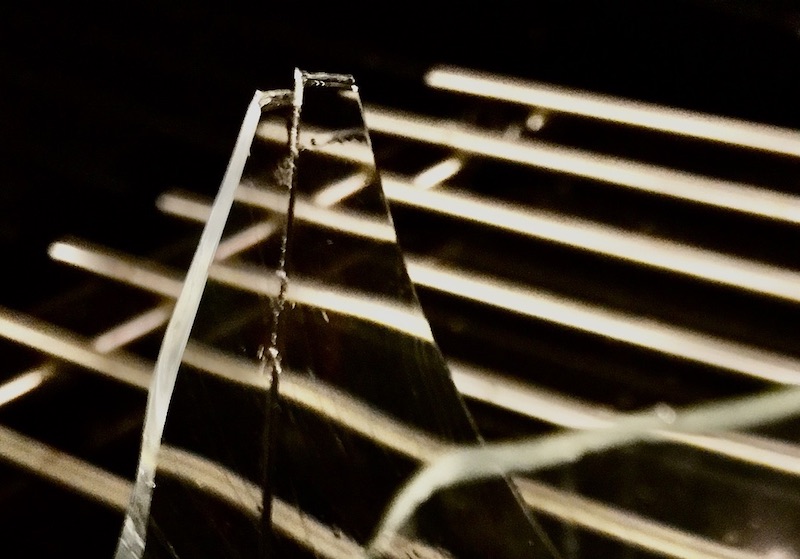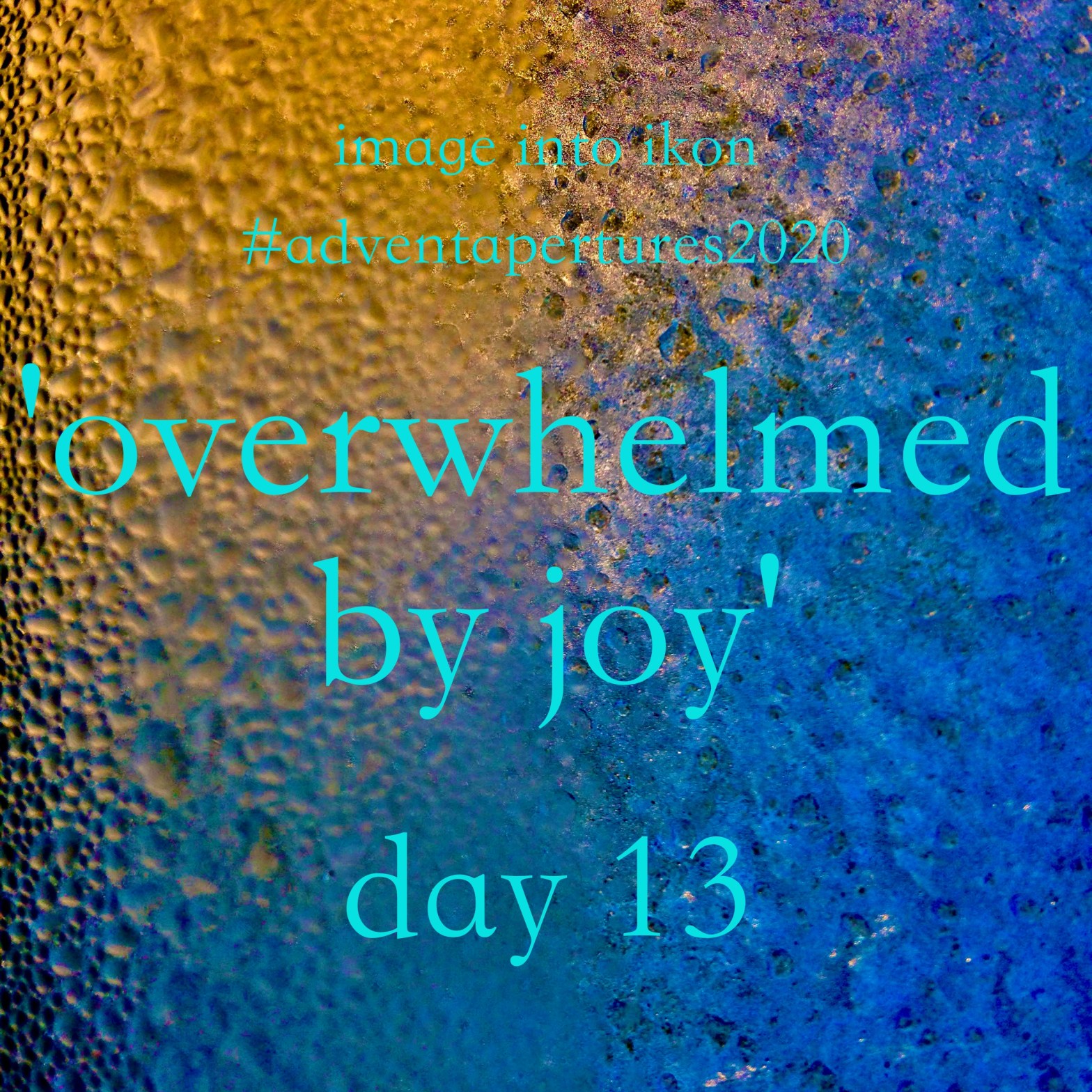You see, there is much I want.
Perhaps everything:
the darkness of each infinite fall,
the scintillant play of each ascent.
So many people live without wishes,
calm of spirit, light of judgement,
muted as princes.
But you rejoice in every soul
that thirsts and serves,
rejoice in all whose hands reserve
you for a tool.
You have not grown cold; it is not too late
to dive into your deepening deeps,
where life gives itself up to peace.
Rainer Maria Rilke, Book of Hours/ Book of Monkish Life (trans. Susan Ranson)
The stories of the journey of the Maji to the manger tell us that one of the key parts of their experience happened when the star they were following disappeared. For far too many mornings my first thought on waking is ‘I do not want to live this day’. That thought is accompanied by a deep sense of loss and abandonment. My vision feels clouded, my mind feels fogged, it feels like there is nothing other than being stuck in this pit. Yet I am not stuck; I am not abandoned. This is the lie of depression that I continually have to keep naming as I pray for Grace. Macrina Wiederkehr’s prayer to the Morning Light speaks of something similar:
You have come with your great shining, attempting to sing in a new day, but I have not the heart to receive your shining. I know it is the hour of resurrection and joy, and you are trying to wake up my gladness. Please respect my dreary mood. Your light comes into my darkness, yet my darkness remains unlit. All the same, I ask you to keep shining, and I will try not to be angry at your brightness. Perhaps at some moment during this day your glance of light will fall into my wearied soul. I do not ask you to stop shining, only this – understand my dark moment and be gentle with your light. O Morning Light, respect my darkness.
Macrina Wiederkehr, Seven Sacred Pauses (60)
There is something very important about this honesty before God, as I try to work my way through the ‘dark’ places in my life. Brother David Steindl-Rast writes about the monastic observance of Vigils (also known as Matins) as ‘the night-watch hour’:
the time for learning to trust the darkness. Looking up to the night sky, we are reminded of the immense mystery in which we are immersed. The root meaning of the word “mystery” is to shut one’s eyes and ears. Mystery is silence, darkness. Rilke speaks in his Book of Hours of turning inward, of looking deep within himself, and he reports what he finds: “My God is dark.”
Music of Silence (20)
The experience of God as a colourless darkness in whom there is no One present is a familiar one to many who are seekers into God. These may be the days in which I wish to hurry on past, not daring to glance at these shadows, pursuing the Light with all my might, allowing myself to be distracted by the bright colours. Yet I know from experience this impulse to flee from myself and from God-within-me, means I will miss vital signposts for healing and flourishing, for me and for others. In wanting to escape the moments when darkness feels absolute, I join those who, when watching fireworks, have ‘no understanding that the anticipation of the next one holds just as much magic as the gaps afterwards, that silence makes a satisfying star sandwich, that the joy is held, like breath, in the waiting’. (‘Day 217: Fireworks’, Keren Dibbens-Wyatt, Garden of God’s Heart (217)) In my desire to flee, I end up searching in the wrong place.
Frequently God calls me to wait in the discomfort of these places so that I might find this Joy. Even though it feels an unsafe place to be, this prayer from the Iona community reminds me that it is not:
As the rain hides the stars,
as the autumn mists hide the hills,
as the clouds veil the blue of the sky,
so the dark happenings of my lot
hide The Shining of Thy Face from me.
Yet, if I may hold Thy hand in the darkness,
it is enough,
since I know that,
though I may stumble in my going,
Thou dost not fall.
So even when the star disappears and I am left floundering and stumbling in my JoyPilgrimage, it is precisely at this point that I can follow an instinct to move towards the Presence I know is here, somewhere. This will mean moving closer to the heart of the darkness in an inward sense, but it also means looking outwards to the darknesses of others, and bringing them closer to the Presence too, in prayer and in practice. I may feel powerless to act in the face of others’ suffering, loss, grief and pain, but Henri Nouwen corrects my view of this ‘power’ I feel I have lost:
In and through Jesus we come to know God as a powerless God, who becomes dependent on us. But it is precisely in this powerlessness that God’s power reveals itself. This is not the power that controls, dictates and commands. It is the power that heals, reconciles and unites. It is the power of the Spirit. When Jesus appeared people wanted to be close to him and touch him because “ power came out of him” (Luke 6.19). It is this power of the divine Spirit that Jesus wants to give us. The Spirit indeed empowers us and allows us to be healing presences. When we are filled with that Spirit, we cannot be other than healers.
Henri Nouwen, Bread for the Journey (181)
However I feel in this moment, I hold onto the fact that joy is not a fleeting emotion, but a way of being a healer: for by healing others, leading them to experience an intimate encounter with the One Who is Joy, is the way I too will be healed to behold Joy in my turn.
It is said that before entering the sea
a river trembles with fear.
She looks back at the path she has traveled,
from the peaks of the mountains,
the long winding road crossing forests and villages.
And in front of her,
she sees an ocean so vast,
that to enter
there seems nothing more than to disappear forever.
But there is no other way.
The river cannot go back.
Nobody can go back.
To go back is impossible in existence.
The river needs to take the risk
of entering the ocean
because only then will fear disappear,
because that’s where the river will know
it’s not about disappearing into the ocean,
but of becoming the ocean.
‘Fear’
Khalil Gibran

joy is held. iPhone image.

I appreciate your raw vulnerable authenticity in these reflections, particularly today’s. Thank you for your strength and courage in sharing.
LikeLike
Thank you so much for this comment Abigail. I strive to remain vulnerable as I write, and as I make images, but I often can’t recognise if I’ve managed it, so to have you say you see and hear it gives me a great gift of reassurance. Bless you for all the encouragement you keep giving me. Heartfelt thanks my sister.
LikeLike